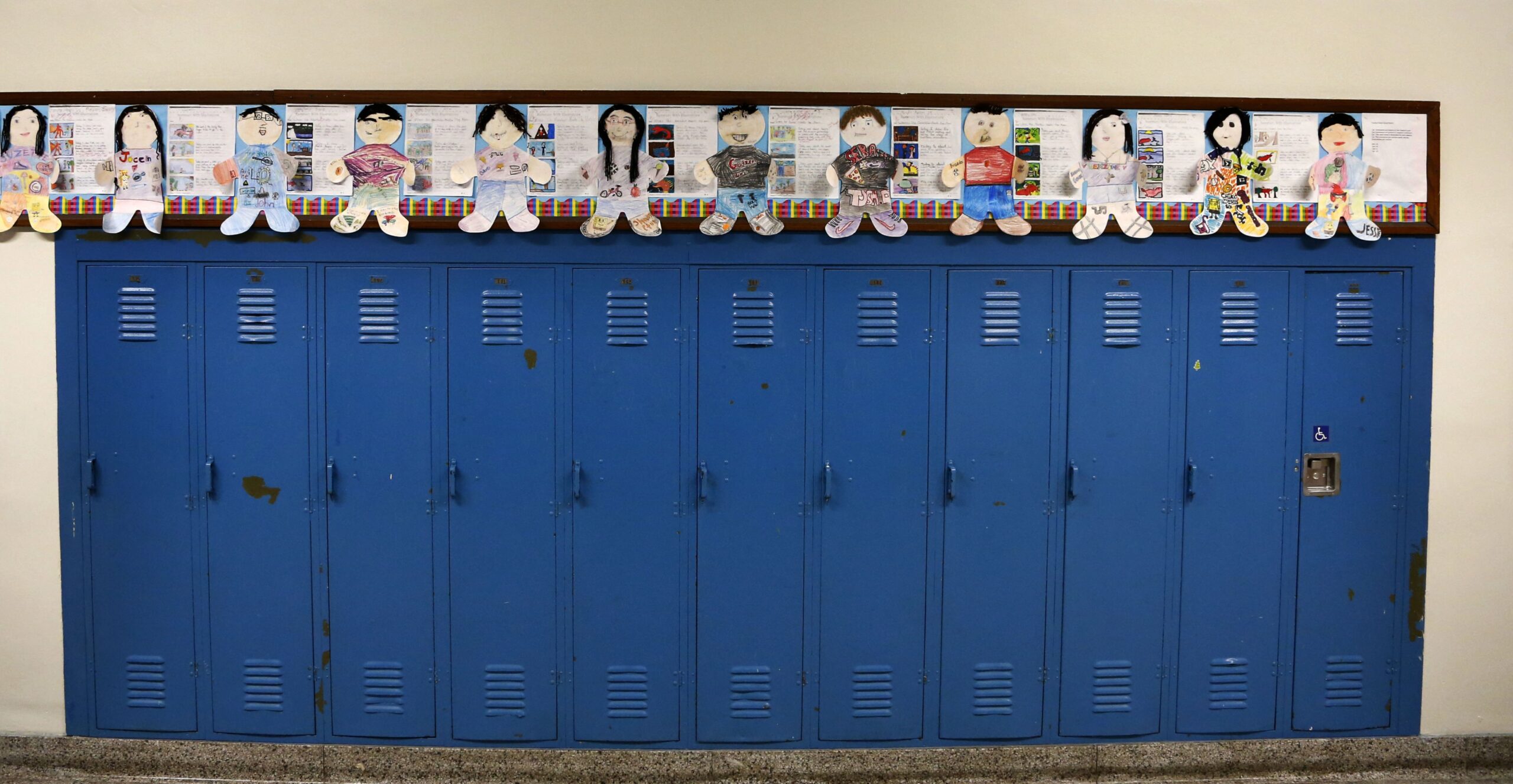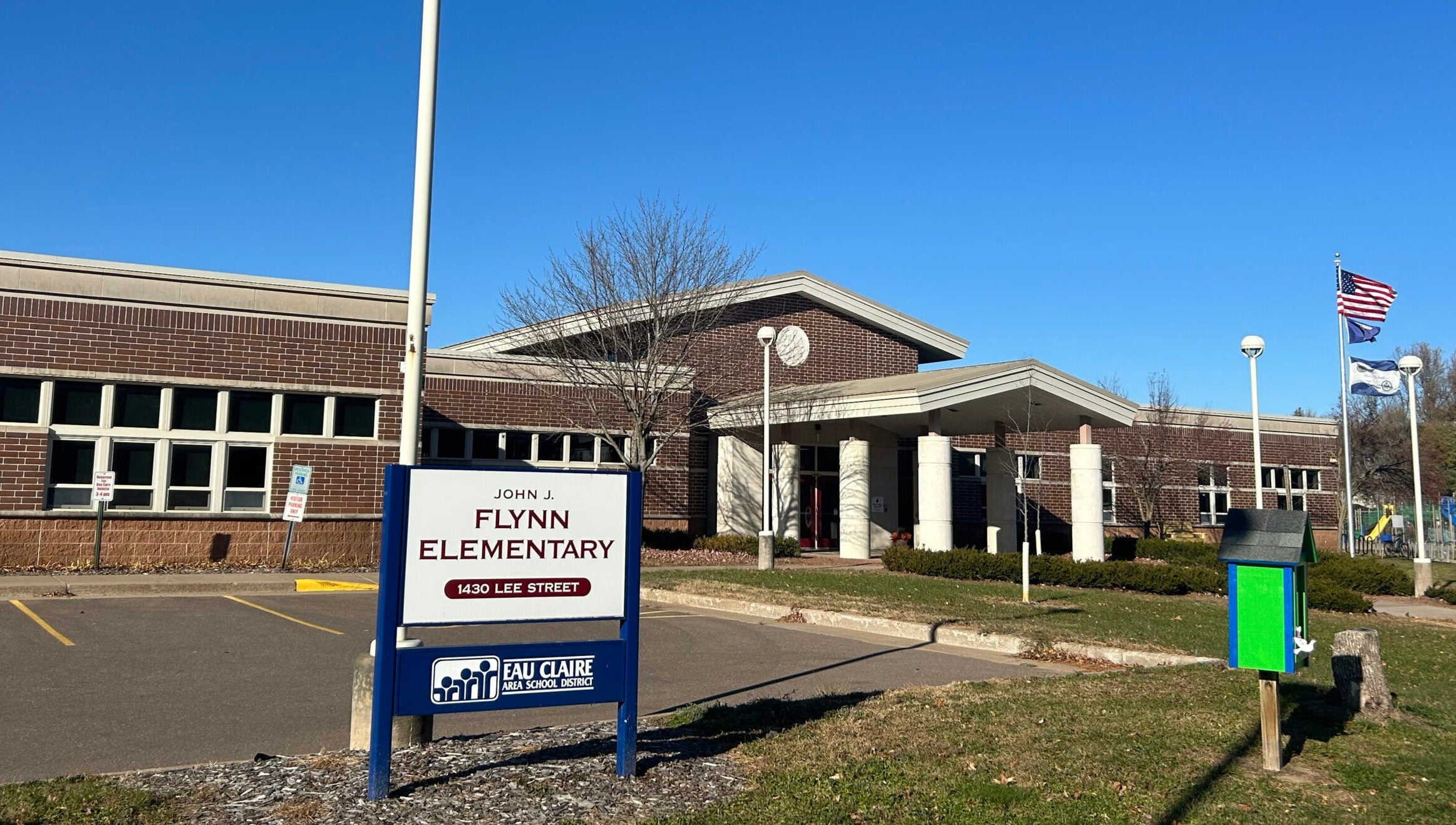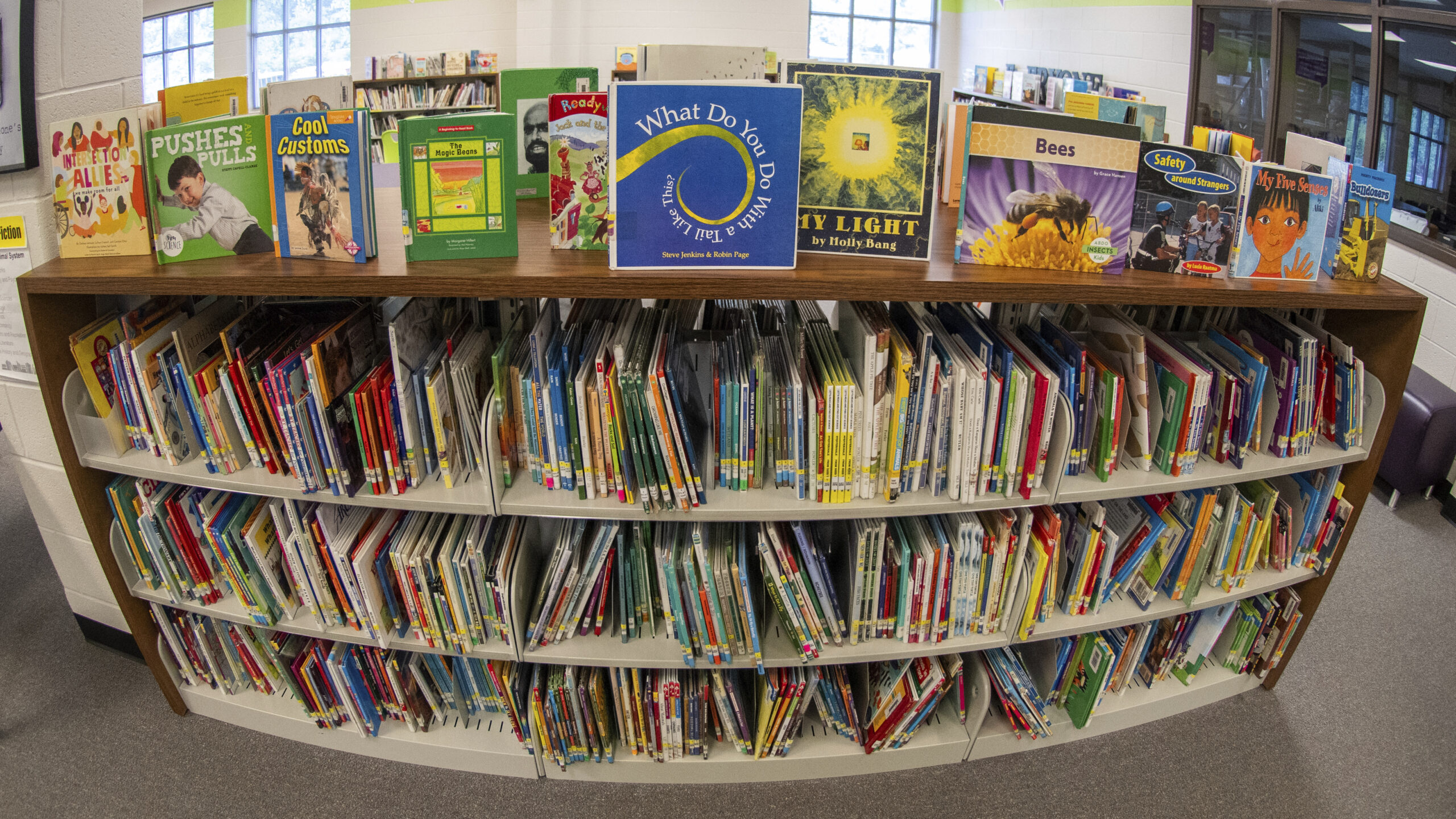Erica Kochanski has been paying attention to the Waukesha School board since moving to the district in 2021.
That was the same year the board gained national attention for deciding not to participate in a federal program that would have provided free school lunches to families. The district has since gotten notice for its handling of LGBTQ+ issues.
But it’s the district’s recent decision to attend a School Board Summit sponsored by the conservative law firm, the Wisconsin Institute For Law & Liberty, or WILL, that has upset Kochanski.
News with a little more humanity
WPR’s “Wisconsin Today” newsletter keeps you connected to the state you love without feeling overwhelmed. No paywall. No agenda. No corporate filter.
Four of the board’s nine members attended the April event, with the district picking up the $600 cost.
Kochanski doesn’t believe taxpayer money should have been used to send President Kelly Piacsek, Anthony Zenobia, Karrie Kozlowski and Bette Koenig to a partisan meeting.
Kochanski voiced her concerns at a June school board meeting and followed up with emails.
In emails sent back to Kochanski on June 13, and obtained by WPR, Piacsek, Koenig and Kozlowski defended their attendance. They compared the WILL summit to the workshops for board members organized by the Wisconsin Association of School Boards.
“I agree with you that board members should not be attending partisan events using district funds and I’m unaware that has occurred,” Piacsek wrote.
“Although WILL often represents a constitutionally conservative interpretation of the law, to my knowledge, WILL is a nonpartisan, nonprofit organization that takes on a myriad of pro bono legal issues and is highly rated for their financial transparency,” Piacsek continued.
WILL describes itself as interested in “Individual Liberties, Equality Under the Law, Constitutional Government and the Rule of Law, Economic Freedom, and Education Reform.”
Part of WILL’s mission focuses on challenges to education policy, including a focus on shifting public spending on education away from the public school district model to one that would “allow our education dollars to follow students wherever they choose to attend school.”
The group opposes public unions, opposes federal programs that guide public education, and promotes classroom transparency and parental rights over curriculum decisions related to issues like critical race theory.
Often, WILL uses lawsuits or threats of lawsuits targeting school districts to promote its policy goals.
Past lawsuits or threats of suits have targeted Wisconsin school districts over issues like transgender student policies, Title IX policies, transportation of private school students, COVID closures, union issues, and school choice issues.
Kochanski says she couldn’t get an answer from the district of what is or isn’t appropriate for a school board member to attend.
“And I was not able to get a clear view that there is any kind of check or balance for spending taxpayer funds,” she said.
Less than a month after Kochanski confronted the Waukesha board about the issue, the board voted 8-1 to end their membership with the Wisconsin Association of School Boards, an organization that describes its mission as seeking “to advance education through supporting the tradition of local school control of the state’s public schools.”
In their discussion, Waukesha school board members said the work of the state organization does not reflect the community’s values.
Changes come as local school boards become more engaged with right-wing firm
The changes happening in Waukesha come as WILL has gotten more involved with local school boards.
Cory Brewer, an attorney with WILL and director of the firm’s Restoring American Education project, said the work being done related to school boards is to provide resources on legal and policy issues.
“We saw a demand and a space that was not being filled,” Brewer said.
The summit included several sessions including one on empowering school board members. “This presentation is tailored for school board members seeking to expand their knowledge base and enhance their decision-making capabilities by hearing about resources beyond traditional avenues such as state school board associations or district administration,” according to the description.
Other sessions were on parental rights and student gender identity, and Equality in the classroom, which discussed the “legal obligations of schools to ensure equal treatment of all students.”
The school board summit was co-hosted by the Noah Webster Educational Foundation, a Christian education nonprofit based in Virginia. It was sponsored by the Virginia-based Leadership Institute.
The Noah Webster foundation and Leadership Institute are both coalition partners for Project 2025, a 900-page blueprint by former leaders of a Trump administration to remake nearly every aspect of American life.
Project 2025 also calls for making extensive changes to public education including cutting low-income federal programs like Head Start and eliminating the entire Department of Education.
Kochanski said the sessions offered at the summit and the connection to national groups associated with Project 2025, is what led her to reach out to the district about the use of taxpayer money.
Brewer said WILL’s work is not connected to Project 2025, but the firm offers resources to school boards, including model policies, the school board summit and FAQ documents because there is a desire for the information from board members.
“We work with a variety of groups, and we’re glad to be able to partners to provide school boards resources,” Brewer said. “This is not unique to Wisconsin. School districts, in particular school boards, across the country have often felt they do not have enough resources with enough ideological diversity and their needs are not being met.”
Brewer said about 100 school board members and administrators attended the summit. She did not know how many districts were represented.
WPR confirmed school board members from Waukesha, Menomonee Falls, Oconomowoc and Muskego attended the summit. The cost per member was $150.
David Armiak, research director with the progressive watchdog group Center for Media and Democracy, said it is impossible to compare the state school board association to WILL.
He said the association is statewide non-partisan organization “where WILL is a right-wing funded ideological group that is pushing right-wing policies.”
“They’re getting paid to do this by someone that is not educated in education or ed policy, but they are weaponizing it for the benefit of the Republican party,” Armiak said.
Armiak wrote a piece about the summit where he points out that while the funding source for WILL’s Restoring Education Policy project is not disclosed, the likely backer is the Bradley Foundation.
Since WILL was founded in 2011, the Bradley Foundation alone has provided $9.4 million — or 36 percent — of the institute’s total funding, Armiak said.
Bradley calls WILL the “MVP” of its Wisconsin network, making it the logical partner for the right-wing funder to turn to for influencing school boards in Wisconsin in 2024, Armiak said.
Waukesha board members say state association doesn’t represent values
During the July 11 Waukesha School Board meeting, members had a lengthy discussion about the district’s membership with the Wisconsin Association of School Boards, before ultimately voting 8-1 to quit.
Board members said the organization no longer represents the values evolving school boards have.
Some of those “values” have to do with controversial legislative bills that were debated during the last session.
The Wisconsin Association of School Boards opposed a bill that would have excluded trans women and girls from playing sports. The group also opposed bills related to “curriculum transparency,” competitive bidding for school districts and allowing paraprofessionals to become teachers.
School Board member Eric Brooks said the association supports bills that are easy to get behind, like Act 20, the statewide reading initiative.
“When it comes to the issues that I think a lot of people deeply care about and that are maybe a little bit more contentious in nature, they seem to more often than not go against what many people in this community value,” said Brooks, who also works for Republican State Sen. Duey Stroebel.
In 2021, COVID-era frustrations led to big gains for Republican-backed candidates on Wisconsin school boards, especially in the Milwaukee suburbs.
These boards have since turned to high-profile controversies including removing books from school libraries and LGBTQ+ issues.
During a March 2024 Lincoln Reagan Dinner,Waukesha Board President Kelly Piacsek called herself an “OG WISRED candidate.” WISRED is an arm of the Waukesha County GOP focused on getting school board candidates elected.
“In total, WISRED school board members have won over 120 times in the past three elections,” Piacek said at the dinner. “In 2021, it was about shifting majorities by one or two seats. But three years later, we hold the presidencies in all but one school district.”
In April, incumbents Piacsek, Zenobia and newcomer Brooks were elected to the school board. They were all endorsed by WISRED.
The Waukesha School board decided it was not worth the cost to stay with the state association. It would have cost Waukesha schools $15,371 for the membership, plus about $5,000 for additional training, according to the district. That’s up from about $14,600 last year.
Waukesha board member David Wadd said school boards have changed over the last three years, and the work of the Wisconsin Association of School Boards is now contradictory to what the people of Waukesha want.
“I went to the summer conference a year ago, and it was clear there was a rapidly changing philosophy among school boards and for (the association) to take these positions anyway … ,” Wadd said. “If they don’t understand that they are alienating a significant portion of their membership, then they don’t have a clear understanding of who their members are.”
Dan Rossmiller, executive director of the Wisconsin Association of School Boards, said in 15 of the last 16 years, all public school boards in Wisconsin were members of the organization.
“We strongly believe that having every district as a member helps ensure that we build bridges amongst all school boards — educationally, socially and in advocacy,” Rossmiller said.
The association is a non-partisan group that does not endorse or give money to any political candidates.
Rossmiller said he’s disappointed Waukesha did not renew its membership, but he values their perspective and the perspective of all Wisconsin school boards.
“We hope they’ll return in the future to help set our path as we support, promote and advocate for public education, school boards and students,” Rossmiller said. “In the meantime, we hope to continue a dialogue, engaging with Waukesha and responding to their concerns as we serve all our members.”
Wisconsin Public Radio, © Copyright 2025, Board of Regents of the University of Wisconsin System and Wisconsin Educational Communications Board.






